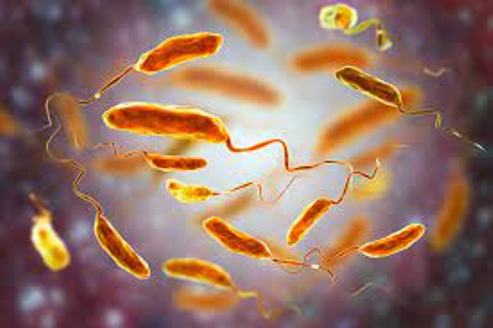
LAGOS AUGUST 10TH (NEWSRANGERS)-No fewer than 816 people were reported to have died of Cholera disease infection within a month in Nigeria.
The Nigeria Centre for Disease Control (NCDC) who made the disclosure in a statement made available to NewsRangers said between the 1st of January and 1st of August 2021, 31,425 suspected cases of cholera, 311 confirmed cases and 816 deaths have been reported from 22 states and FCT.
The affected states according to NCNC are Benue, Delta, Zamfara, Gombe, Bayelsa, Kogi, Sokoto, Bauchi, Kano, Kaduna, Plateau, Kebbi, Cross River, Niger, Nasarawa, Jigawa, Yobe, Kwara, Enugu, Adamawa, Katsina, Borno and FCT.
NCNC said the outbreak of cholera across states in Nigeria has been exacerbated by poor access to clean water, open defecation, poor sanitation and hygiene.
The Centre disclosed that the wrong disposal of refuse and practices such as open defecation endanger the safety of water used for drinking and personal use, adding that these have led to the spread of water-borne diseases such as cholera.
It said without proper water, sanitation, and hygiene (WaSH), Nigeria remains at risk of cholera cases and deaths.
“Following
an increase
in the number
of cholera cases, the National Cholera Emergency Operations Centre (EOC) was activated
on the 22nd of
June 2021. The EOC which is hosted at NCDC, includes representation from the Federal Ministries of Environment and Water
Resources, National Primary Health Care Development Agency (NPHCDA), World Health Organization (WHO) and partners.
The
National
Cholera EOC
has led the deployment of Rapid Response Teams to support the most affected states -– Benue, Kano, Kaduna,
Zamfara, Bauchi and Plateau States. Additionally, NCDC
and its partners have
provided
states with commodities for case management and laboratory diagnosis, materials for risk
communications, response guidelines among other support.
“A reactive oral cholera vaccine (OCV) campaign
led by NPHCDA
was
conducted in Bauchi LGA, Bauchi State from 24th
to 28th
July 2021.
But none
of these medical interventions will solve the underlying issues leading to cholera outbreaks. Cholera is a waterborne
disease, and the risk of transmission is higher when there is poor sanitation and disruption of clean water supply.
“The
long-term solution for cholera control lies in access to safe
drinking water, maintenance of proper sanitation and
hygiene. We
continue to advocate to State Governments to prioritise action for solutions that ensure access to and use of safe water,
basic sanitation and good hygiene practices in communities.
“Additionally,
we urge Nigerians to keep their environments clean, only drink
or use water that is boiled
and stored safely, ensure food is cooked and stored in a clean and safe
environment, avoid open
defecation
and wash their hands regularly with soap and running
water.
“Cholera
is preventable and treatable; however, it can be deadly when people who are infected do not access care immediately. Nigerians are advised to
visit a health facility immediately, if they have sudden onset of profuse
watery diarrhoea, nausea, vomiting, and weakness.
“As the NCDC continues to work with partners to lead the
health-sector response to cholera outbreaks, we call for an urgent
improvement in access to clean water, proper sanitation and hygiene,” the statement appealed.
About Cholera
Cholera is a water-borne disease characterised
by sudden onset of profuse watery diarrhoea, which can lead to sudden
death as a result of dehydration, if not managed on time. Other symptoms include nausea, vomiting, and
weakness. Most infected people may only show mild symptoms or have no symptom at all. The
time between an infection and appearance of symptoms of the disease is 2 hours to
5 days.
The
disease is easily treatable, if detected early. Most infected
people can be treated successfully through prompt administration of oral rehydration solution (ORS), with the
goal to replace lost fluids and electrolytes. The ORS solution is
available as a powder that can be reconstituted in boiled or bottled water.
Without
rehydration, approximately half the
people with cholera
die. With treatment, the number of fatalities drops to less than 1
percent. Severely dehydrated people may also need intravenous
fluids.
People
most at risk are:
• People of all ages living
in places with unsafe water
• People living in areas
with poor sanitation
• People who consume
potentially contaminated food or fruits without proper cooking and washing with safe water
• People who do not perform
hand hygiene when appropriate
• Relatives who care for
sick person with cholera at home
• Health care workers including:
• Doctors, nurses and other
health workers providing direct patient care in the absence of
standard precautions.
To
reduce the risk of cholera, the NCDC offers the following
advice:
• Ensure that water is
boiled and stored in a clean and safe container before drinking
• Practice good personal
hygiene by washing your hands frequently with soap under clean
running water. Use alcohol-based
hand sanitiser if soap and clean water are not
available
• Ensure that food is well
cooked before consumption. Avoid raw food such as fruits and
vegetables, except you have washed
them in safe water or peeled them yourself.
• Avoid open defecation,
indiscriminate refuse dumping and ensure proper disposal of waste and frequent clearing of sewage











